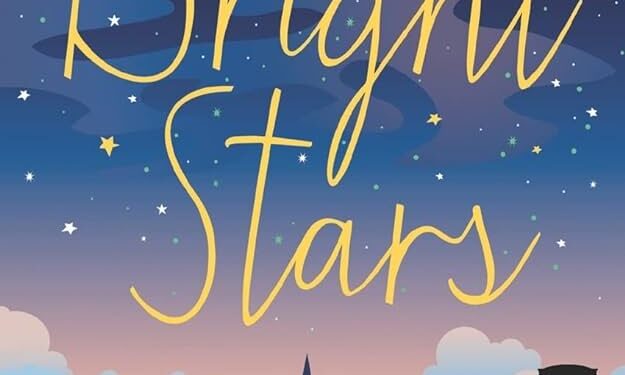Short summary Bright Star, would I were stedfast as thou art poem
Bright star, would I were stedfast as thou art Poem Summary
- Bright star, would I were stedfast as thou art: The speaker addresses a bright star, expressing a desire to be as enduring and steadfast as the celestial body.
- Not in lone splendour hung aloft the night: The speaker mentions that he doesn’t wish to be isolated in splendor like the star, which is alone in the night sky.
- And watching, with eternal lids apart: The star is described as watching with unblinking eyes, suggesting a perpetual vigilance.
- Like nature’s patient, sleepless Eremite: The star is compared to a hermit or recluse in nature, emphasizing its patient and sleepless existence.
- The moving waters at their priestlike task: The speaker personifies the waters as priests, engaged in a sacred or ritualistic task.
- Of pure ablution round earth’s human shores: The waters are engaged in a cleansing ritual around the shores of the earth, suggesting a purifying aspect of nature.
- Or gazing on the new soft-fallen mask: The star is envisioned as watching over the earth, observing the fresh layer of fallen snow as a soft mask covering the landscape.
- Of snow upon the mountains and the moors: The speaker refers to the snow covering both mountains and moors, highlighting the star’s role as a silent observer of natural phenomena.
- No—yet still stedfast, still unchangeable: The speaker reaffirms the constancy of the star, emphasizing its unchanging nature.
- Pillow’d upon my fair love’s ripening breast: The speaker shifts focus to a personal connection, imagining resting on the chest of a beloved, describing it as a “fair love’s ripening breast.”
- To feel for ever its soft fall and swell: The speaker expresses a desire to remain with the beloved forever, feeling the rise and fall of the chest in a comforting and eternal embrace.
- Awake for ever in a sweet unrest: The idea of perpetual wakefulness is introduced, suggesting a state of sweet unrest, possibly reflecting the intensity of emotions.
- Still, still to hear her tender-taken breath: The speaker wishes to continuously hear the soft and tender breath of the beloved.
- And so live ever—or else swoon to death: The sonnet concludes with the speaker expressing the desire to live in this state of eternal love or, alternatively, to “swoon to death,” suggesting a preference for a lifeless state over a life without the beloved.
Also Read-
- Lift Every Voice and Sing Summary Analysis
- Wild Nights – Wild Nights Poem Summary line by line
- An african thunderstorm poem summary line by line
Bright star, would I were stedfast as thou art Poem
Bright Star, Would I Were Stedfast as Thou Art by John Keats is a sonnet that encapsulates the Romantic era’s preoccupation with nature, beauty, and the transcendence of human experience. The speaker’s address to the bright star reflects a desire for constancy and eternal love, juxtaposed against the changing and transient nature of human existence.
Short summary Bright Star, would I were stedfast as thou art poem-The vivid imagery of nature, personification of the star, and the intimate connection with a beloved contribute to the emotional depth of the poem. Keats masterfully weaves together the celestial and the personal, creating a timeless exploration of love’s enduring power.would I were stedfast as thou art Poem, What does the poet wish for in the poem Bright Star?, What are the characteristics of a bright star?, What is the personification in the poem Bright Star?,
FAQ:
1. Who is the speaker addressing in the poem?
The speaker is addressing a bright star, expressing a desire to emulate its steadfastness and constancy.
2. How does the poem explore the theme of love?
The poem explores love as a force that transcends time and mortality. The speaker’s desire for a steadfast and eternal connection with a beloved is a central theme.
3. What is the role of nature in the poem?
Nature is depicted as a backdrop to the speaker’s emotions. The poem uses natural imagery, such as the moving waters and snow-covered landscapes, to enhance the themes of constancy and the eternal.
4. Why does the speaker mention a “sweet unrest”?
The “sweet unrest” conveys the paradoxical nature of the speaker’s desire. While the speaker wishes for eternal love, there is also a sense of restlessness and intensity associated with the emotions.
5. What is the tone of the poem?
The tone is contemplative, longing, and reflective. There’s a sense of admiration for the unchanging beauty of the star and a deep emotional yearning for a love that defies the passage of time.
6. How does the poem conclude?
The poem concludes with the speaker expressing a desire to live in a state of eternal love with the beloved or, alternatively, to “swoon to death,” suggesting a preference for a lifeless state over a life without the beloved.
















